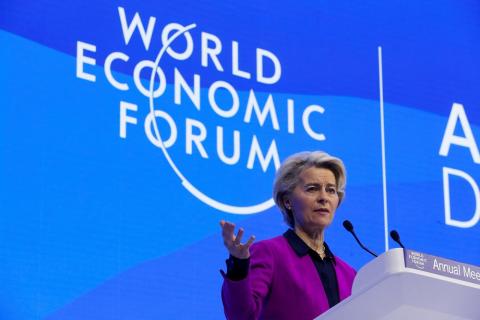
British and EU negotiators have hit a new obstacle to securing a trade and security deal after clashing over €70bn of subsidies handed to European farmers by Brussels, the Guardian can reveal.
The EU’s negotiating team led by Michel Barnier was accused in the latest round of talks of seeking to block the government from defending British farmers from cut-price European imports.
The row centres on the EU’s demand for what it is claimed would be an unprecedented commitment not to retaliate through tariffs on European goods even where it could be potentially shown that British farmers are being unfairly undercut.
The negotiators are set to return to the issue over the “intensified” summer talks starting next week, joining a long list of thorny areas where common ground is yet to be found.
The 27 EU governments will issue a statement welcoming the new talks, scheduled to run into September, but call for businesses to be ready “for all outcomes”, according to a leaked paper.
The UK’s farming industry is facing the biggest shake-up in over 40 years with the country’s exit from the single market and the customs union at the end of the year.
For the duration of the current parliament, farmers will be paid subsidies at the same rate as the EU – around £3bn a year.
The British government is concerned at the potential for heavily subsidised EU farmers to exploit the period of uncertainty, an anxiety brought to a head by clauses contained in the European commission’s draft legal text for a future trade deal.
Under World Trade Organization rules there is no cap on payments to farmers that “do not distort trade, or at most cause minimal distortion”.
Such unrestricted subsidies, known as “green box payments”, include direct income supports for farmers that are not related to production levels or prices. They also include environmental protection and regional development programmes.
The EU has over time hugely increased the proportion of its subsidies that it regards as being green box payments, often in the face of opposition from rival producers.
In 2018, the US Department of Commerce imposed a 17.13% anti-dumping duty on Spanish olives claiming that they were being sold at unfairly low prices as a consequence of green box payments.
Two clauses in the EU’s proposed free trade deal with the UK would have both sides agree that such funds are not in effect price distorting and cannot be countered with “anti-subsidy proceedings nor be subjected to price or cost adjustments in anti-dumping investigations”.
The UK negotiating team led by David Frost has in response argued that such a clause would limit the government’s ability to protect the British farming industry.
The EU has previously sought to have similar provisions, known as a “peace clause” by trade experts, inserted into prospective trade deals with Australia and New Zealand but they do not exist in any current agreements.
Maria Wiggerthale, a researcher on trade for Oxfam in Germany who has studied the potential price-distorting impact of the EU’s green box payments, said: “There is no reason why there should be such an external ‘peace clause’ for the EU.
“At the time of the WTO agricultural negotiations there were proposals to develop criteria for green box measures to make them really non-distorting and this has always been rejected by the EU.
“Why should the EU be worried if there is no problem with these payments? EU exports to the UK are about 20% and they do fear a kind of dumping. I think it is reasonable for the UK on this. It is such a large amount of money.”
The UK government and European commission declined to comment.











